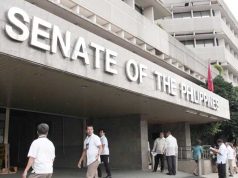SCIENTIFIC proficiency at the local government unit (LGU) level is required to help them deal with climate change, an academic said.
In a presentation at the 6th Asia-Pacific Climate Change Adaptation Forum held at the Asian Development Bank on Wednesday, Juan M. Pulhin, a professor and former dean of the University of the Philippines Los Baños (UPLB) College of Forestry and Natural Resources, said LGUs need to be capable of employing technology to come up with proper assessments in their jurisdictions.
“Science has the ability to look forward which may be beyond the local knowledge experience. The challenge is how integrate science tools and local knowledge to improve assessments,” Mr. Pulhin said.
“The LGU is at the forefront in battling climate change at the local level. They’re the intermediary between the national government on one hand and the community on the other,” according to Mr. Pulhin.
In an interview with BusinessWorld, Mr. Pulhin said capacity development should be implemented in all LGUs by giving technical training and increasing the number of specialist staff among the LGU’s regular job holders.
“On one hand, we have to use science, and some of our LGUs are not really trained on that aspect… At the same time, you also have to integrate it with local knowledge and experience and again some of our LGUs do not have the capacity to do that,” Mr. Pulhin said.
Mr. Pulhin said continuous capacity development among LGUs is needed to keep up with scientific developments to help LGUs assess their vulnerability to drought and flooding.
“Even more advanced LGUs need some capacity development because climate change is also a moving target and there are a lot of developments on the science aspect. There has to be continuous capacity development among LGUs in terms of assessing what we call risk and vulnerability,” Mr. Pulhin said.
“A concerted effort is needed at the barangay level. The challenge for LGUs, in addition to funding, is human resources. Many of them are very limited and they are performing many tasks,” Mr. Pulhin said.
Asked to comment on the deadly landslide in Itogon, Benguet in September, Mr. Pulhin said LGUs should be able to come up with a plan for the “new normal” of climate-triggered calamities.
“In Itogon, they said there were no landslides in that area for some time, and then suddenly we had continuous rainfall, which reached saturation point. We are now living with what we call the new normal, and that is climate variability. We should always plan for a new normal which is a departure from business as usual,” Mr. Pulhin said. — Reicelene Joy N. Ignacio



